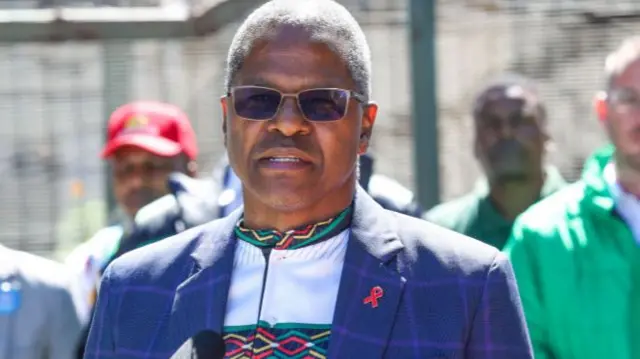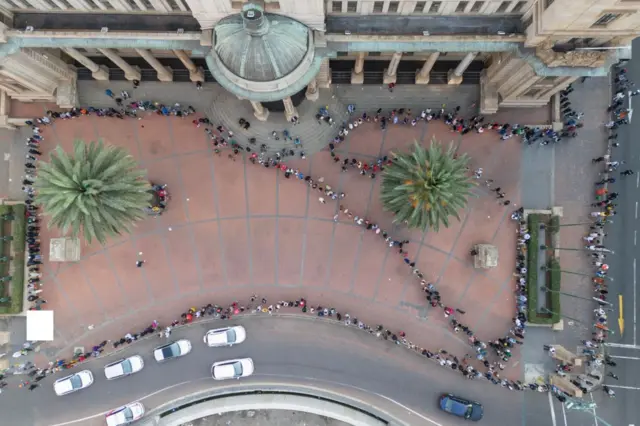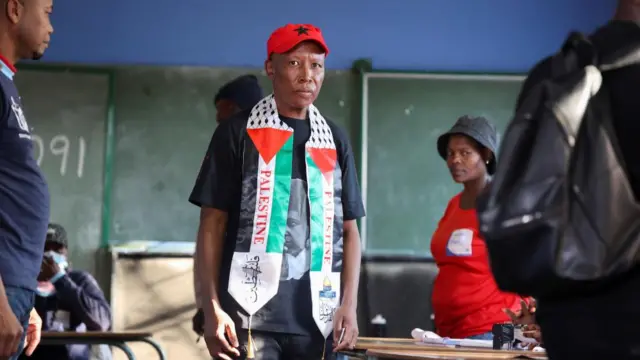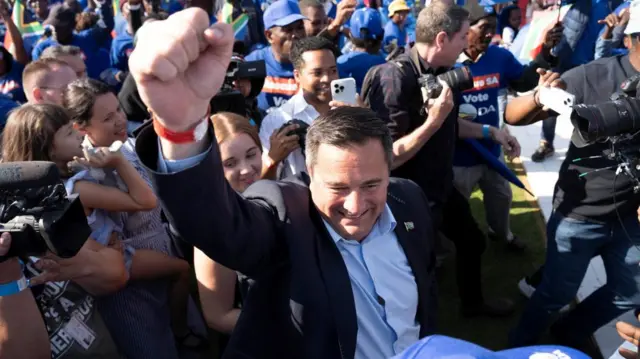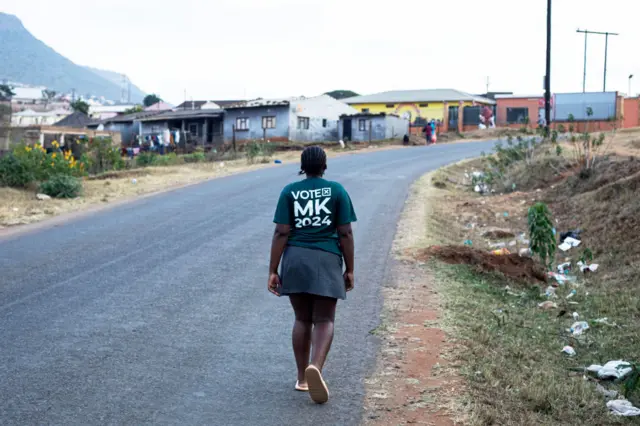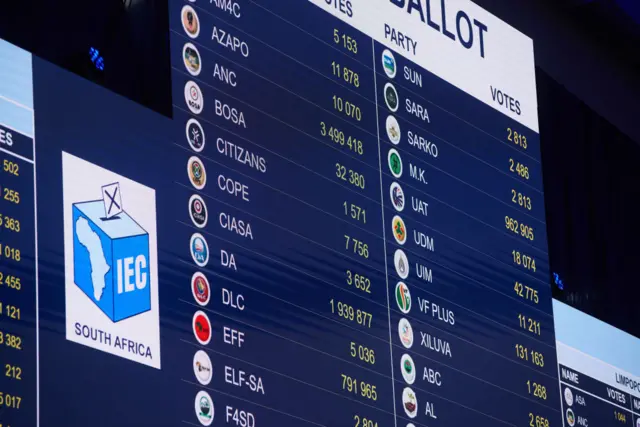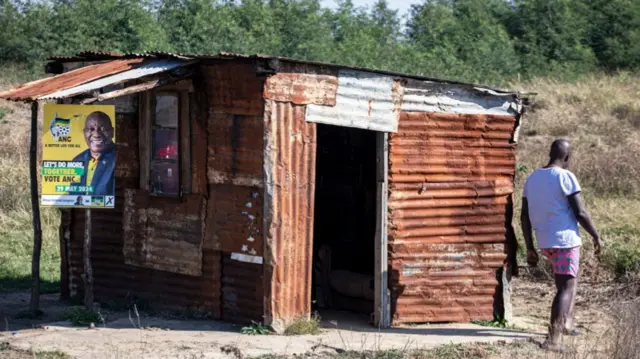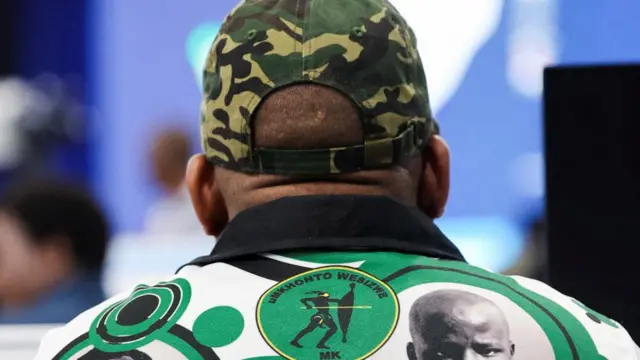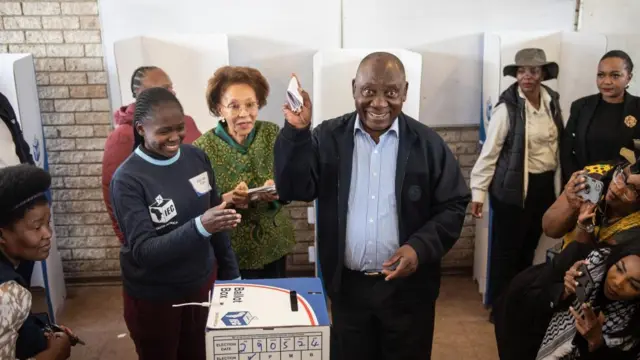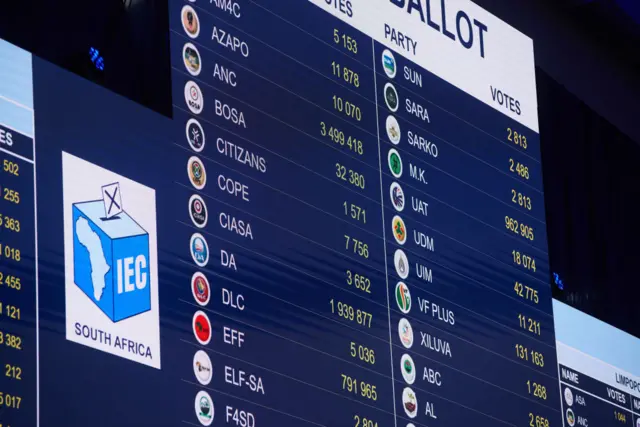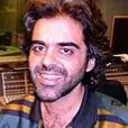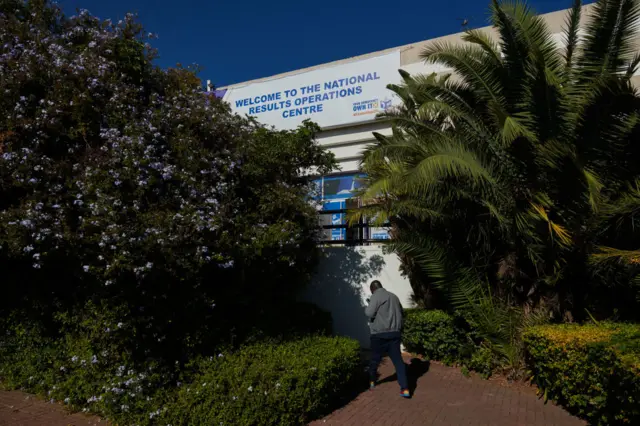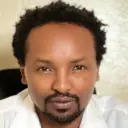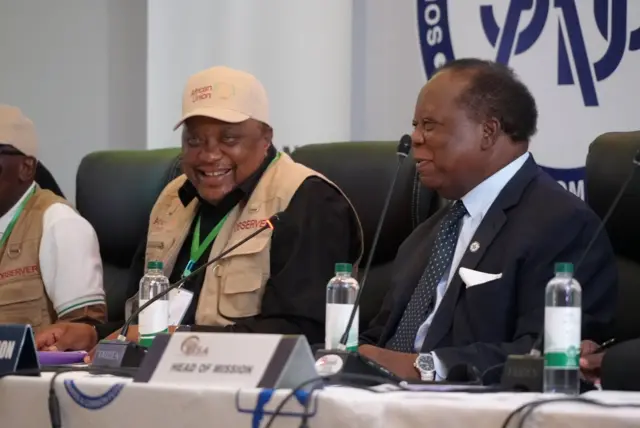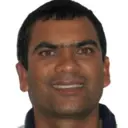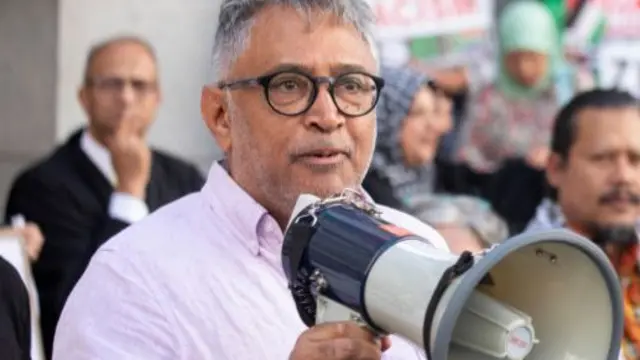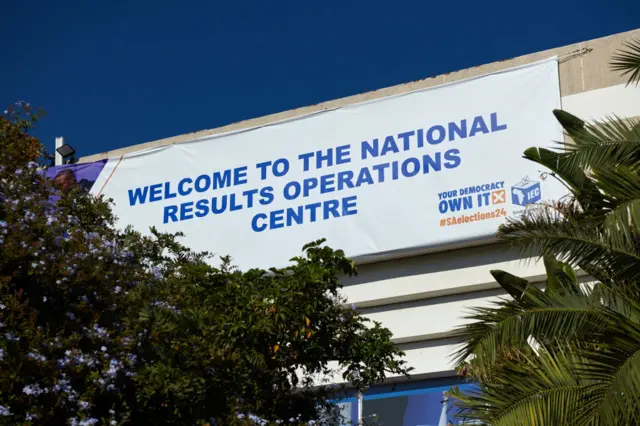Where things stand as of nowpublished at 12:22 BST 1 June 2024
- Nearly 99% of votes have been counted and verified nationally
- The ANC is set to lose its three decades of political dominance
- It has 40% of votes nationally and cannot reach the 50% needed to be able to govern the country alone
- This means the ANC will have to form a coalition government with one or more smaller parties
- Trailing behind are the DA on 22%, MK on 15%, the EFF on 10% and the IFP with 4%
- The EFF has lost its status as South Africa's second-biggest opposition party to MK, led by former President Jacob Zuma
- The DA has failed to make big gains among black voters - it has had only marginal growth - from 21% in 2019 to 22% this time
- MK is falling short of winning an outright majority in KwaZulu-Natal - its political stronghold
- The party is demanding a manual recount
- Political deals will be made behind the scenes, but the ANC could be open to sharing power with the DA and IFP
- Fractious relations with Zuma may make a deal between his MK party and the ANC unlikely
- The other option would be a deal with the radical EFF
- Voter turnout stands at nearly 59%, the lowest in South Africa history
- Final results are set to be announced on Sunday evening
